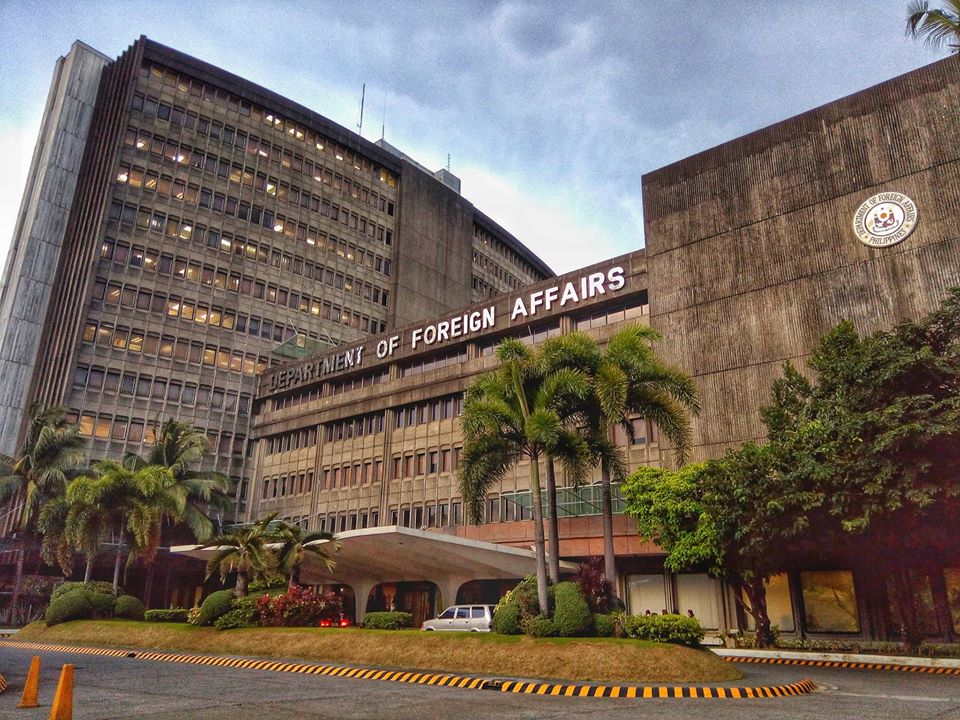MANILA, Philippines — The Department of Foreign Affairs (DFA) on Sunday slammed the European Parliament after it released a resolution on the human rights situation in the Philippines, calling it a “misguided attempt to interfere in the Philippine electoral process.”
“We condemn the misguided attempt of the European Parliament to interfere in the Philippine electoral process through its Resolution raising already discredited allegations of human rights violations in the thin hope of heavily influencing the outcome in favor of its choice,” the DFA said in a statement.
“The allegations raised in the Resolution are unfair, largely baseless, prompted by European supporters of libelous journalists and bitter critics of the current administration because they miserably lost the previous election. The Resolution is based on a deliberately falsified impression of the actual human rights situation in the country. The Resolution is presumptuous given the historical record of its main proponents,” it added.
It then cited the UN Joint Program (UNJP) for Human Rights, which they said have already addressed allegations of human rights violations, even the extrajudicial killings committed in President Rodrigo Duterte’s “war on drugs.”
“The UNJP covers alleged cases of extrajudicial killings involving militants and trade union leaders, and deaths arising from the anti-illegal drug campaign to avert the fate of Central America. The Philippine justice system continues to ensure a safe and enabling civic space for civil society of all stripes including human rights defenders,” the DFA said.
“Following an inclusive and transparent process of consultations, the UNJP was launched in July 2021 in the presence of among others, Chargé d’Affaires Rafael de Bustamante Tello of the Delegation of the European Union to the Philippines. He welcomed it warmly,” it added.
The DFA then called on EU Parliament Vice President Heidi Hautala to prove the information provided in the resolution, with the EU Delegation, to the Philippines before making demands.
“Her disrespectful language disregards these ongoing efforts of the Philippines and the United Nations, and the mechanisms and processes that inform their joint efforts to advance human rights,” the DFA said.
“We advise European Parliamentarians to listen to more respectable sources than the militant front organizations masquerading as legitimate civil society organizations; the usual disgruntled members of a forlorn political opposition who clearly do not represent the majority of the Philippine electorate; and journalists who have a clear political agenda other than reporting the news in a fair and accurate manner,” it added.
On Thursday, the European Parliament issued a resolution underscoring the human rights situation in the Philippines warning of the withdrawal of the country’s trade privileges with the European Union (EU).
Extrajudicial deaths in the drug war, intimidation and violence against human rights activists, journalists, and critics, as well as the”red tagging” of groups and individuals, were all condemned.
This also isn’t the first time the Duterte administration has been criticized for it’s so-called “war on drugs.” It had garnered criticisms not just across the country but all around the world due to its bloody execution almost as soon as it began back in 2016.
While total deaths sit at 6,225 officially according to the Philippine Drug Enforcement Agency, some human rights groups have claimed that the actual number of individuals slain during the drug war can be between 12,000 to 30,000.
A study done by the University of the Philippines (UP) on July 23, even revealed that the drug war had killed an estimated two people each day.
Just last year, the International Criminal Court (ICC) Pre-Trial Chamber allowed the Office of the Prosecutor to do a full-blown investigation into allegations that Duterte committed the crime against humanity of wide-scale murder.
However, the investigation was suspended in November as the prosecution “assesses the scope and effect” of the deferral request.
Both Malacañang and Duterte have also refused to acknowledge the said investigation. Even arguing against the ICC’s jurisdiction over the country, and claiming several times that they will not cooperate with the probe.
RELATED STORIES:
War on drugs: The violence, scars, doubts and families it left behind
Int’l rights group urges ICC to resume probe on Duterte’s drug war
Int’l rights group show more proof of impunity in serious rights violations in PH
